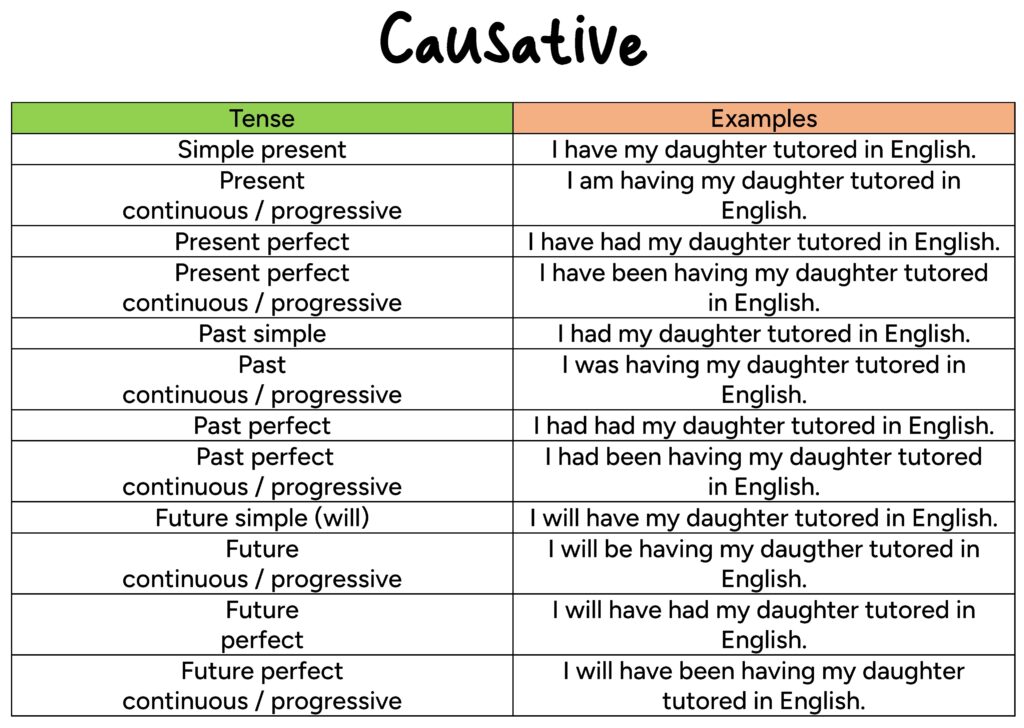The causative is a grammatical construction where the subject causes another person or thing to perform an action rather than themselves. A further use of the causative is that it refers to a unfortunate situation that happened to someone.
Causative form / structure:
Have + object + past participle
I had my room painted last week.
She will have her passport renewed.
I had my cellphone snatched from me last night
Note: you can also use the verb ‘get’ instead of ‘have’ in informal or everyday conversations.
I got my roof repaired last week.

Other forms / structures of the causative
We use the structure have + object + bare infinitive to emphasize that the object has the responsibility to do something, like an order.
My brother has his children pick up their toys after playing with them.
I have my assistant take regular breaks throughout the day.
She will have her students write a diary every Monday.
We use the structure make + object + bare infinitive to exercise authority or control over the object to perform an action.
The parents made their children study math all day.
He made me eat all the vegetables even though I dislike them.
His father made him practice baseball during his childhood.
We use the structure let + object + bare infinitive to give permission to the object to perform an action.
My mom finally let me cook with her.
They will never let me go in these circumstances.
Sonia’s dad let her go to her best friends house to stay overnight.
We use the structure get + object + to infinitive to influence or persuade someone to perform an action.
I got my cousin to lend me his tablet.
Jeremy got the investor to invest in his company.
We will get our dog to drink more water.
Note: the four structures can be used in all tenses, and also with modal verbs.
Read more about English grammar here.